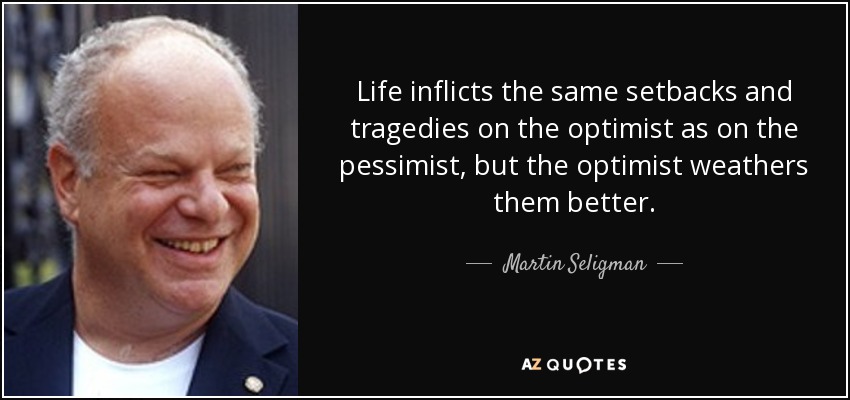
Optimism – Building personal and team resilience
In times of change, personal and team resilience can be challenged, the great Martin Seligman gives us all great guides on how to teach our colleagues to be optimists.
Every experience in life has its positives and negatives. When a situation turns more towards the negative, it can become stressful and it helps if you can see problems as short term and build a plan to overcome the difficulty.
Optimists choose to look at these times as learning experiences and do a selection of the following on a regular basis:
They walk away from the negative
Optimists walk away from negative people in their lives and negative emotions. It may seem like it comes easy to them, but it can also be learned through practice. Stress and anger are difficult emotions to let go of and if we hang onto them, they magnify and can lead to health problems.
They overtly show gratitude
When everything feels like it’s going wrong, it’s hard to concentrate on the positive. But searching for the things you are grateful for can improve your mood. More and more people keep journals as it is proven it helps our mental resilience
They live in the now
If we could all stop worrying about the past and what we should have done or not done our resilience would be so much better. Optimists live in the moment and focus on what they can solve or do now –tackling problems ‘mindfully’ make large problems smaller and more manageable.
As the great man himself said: “Life inflicts the same setbacks and tragedies on the optimist as on the pessimist, but the optimist weathers them better.”
For workshops and digital learning on how to improve resilience check out https://letsgethealthy.co.uk/resilience-2/
Image from pursuit-of-happiness.org



